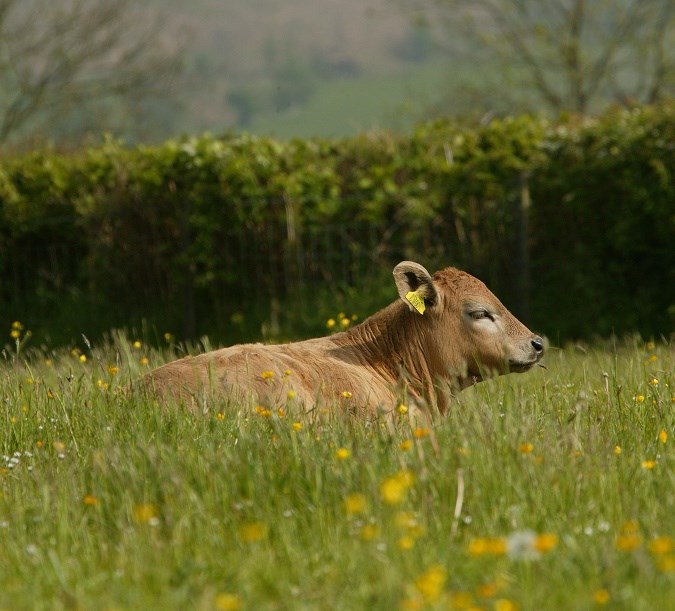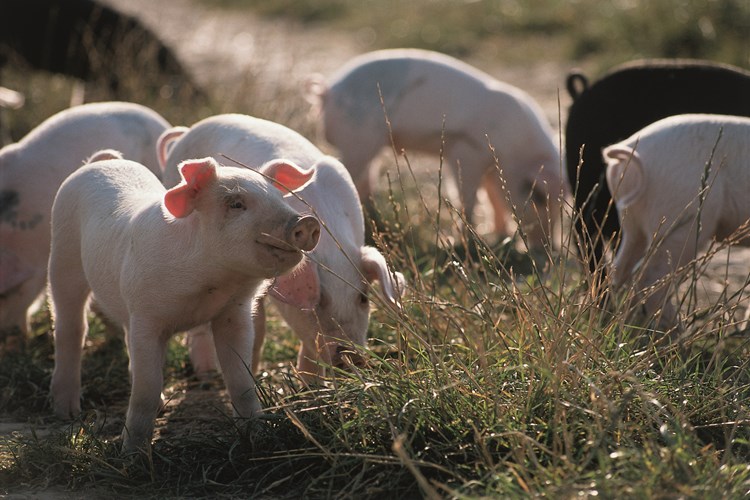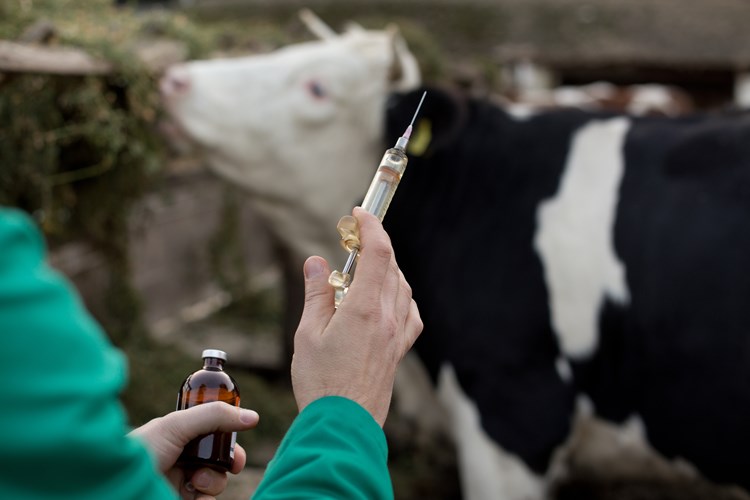GE 2017 - Give Farm Animals a Good Life
Now that the new government is in power, we're asking them to commit to some of our biggest priorities for food and farming in our eight manifesto asks - including soil health, public health, climate change and animal welfare. In the wake of the election on Thursday 8 June, we are now urging the new government to put these issues at the heart of their policies.
We believe it is important to use our voice for those who cannot speak for themselves. The Soil Association has long been a champion for the highest animal welfare standards. We work with farmers, researchers, policymakers and the public, backed up by practical evidence and ongoing research through the AssureWel programme. We have run campaigns against an intensive pig factory and we are a founding partner in the Alliance to Save Our Antibiotics
Our ambition is for all farm animals to live ‘a good life’ within 10 years – but what does that mean, exactly? And how could changes to government policy bring that ‘good life’ about?

The idea of a ‘good life’ for farm animals comes from work by the Farm Animal Welfare Council. They define three levels of welfare: a life not worth living, a life worth living, and a good life.
We, of course, want farm animals to live a very good life, in settings where they can act on their instincts to care for their young, graze, root, peck and play. Within the reality of the current world we live in, where people have an appetite for meat, we owe them that much.
We believe that there are four main areas that politicians should be focussing on, in order to make ‘a good life’ the reality for the 900 million animals1 that are farmed in the UK every year.
1) Politicians must commit to enforcing an industry-wide welfare framework which allows farm animals to follow out their natural instincts

The majority of pigs, chickens and increasingly, dairy cows, live all of their lives indoors in cramped and dull environments. Even if their health is assured, they have no opportunity to fulfil their instincts by caring for their young, scratching around outside, or playing in the sun.
We can do better than this. The new government must urgently support the development of a rigorous framework that scores farms, supply chains and assurance schemes against the criteria set out by the Farm Animal Welfare Council:
Farm Animal Welfare Council’s Five Freedoms
1. Freedom from Hunger and Thirst
2. Freedom from Discomfort
3. Freedom from Pain, Injury or Disease
4. Freedom to Express Normal Behaviour
5. Freedom from Fear and Distress
2) Politicians must introduce clear, honest labelling of the production method of dairy and meat products
As proposed by Labelling Matters – a partnership between the Soil Association, Compassion in World Farming - mandatory labelling on all dairy and meat products would be a win for everybody involved. The public would be provided with the information they deserve about what they’re buying and where it’s come from. The market for higher welfare products would grow, allowing more farmers to shift from producing high quantities to producing higher quality meat and dairy. Not to mention that animals themselves would have a better quality of life – farms would be inspected by the independent assurance schemes that provide the labelling.
3) Politicians must address the huge and dangerous overuse of antibiotics in farming

The emerging crisis of antibiotic resistance creates one of the greatest opportunities ever for the UK to improve animal welfare radically – human health is now known to be at great risk from the overuse of antibiotics. Around 40 percent of antibiotics used in the UK are prescribed to livestock2, often to pre-empt infections they may contract from living in intensive, indoor farms. Reducing antibiotic use by providing animals with cleaner, less intensive environments seems like a no-brainer, if we want to keep ourselves safe and our animals healthy.
The new government must put animal welfare at the heart of policies to tackle the antibiotic crisis including through a ban on the routine preventative use of antibiotics and by adopting targets to cut farm antibiotic use, as proposed by the Alliance to Save our Antibiotics.
4) Politicians must commit to providing incentives and funding for farmers so they can provide – and transition to – healthier animal farming systems

Many livestock farmers are struggling with ever-tighter margins. In order to keep themselves afloat, they are effectively locked into intensive, indoor livestock farming. Farmers need to make significant investment to transition to higher welfare farming systems which give animals more space and rely less on antibiotics.
Government policy should make sure that these healthier systems are a more attractive option for farmers and investors. These policies could include tax relief or capital grants to help farms move to more extensive, outdoor systems and repurpose intensive animal housing.
How can I take action?
Now that the new government is forming, you can help by asking your local MP what their food and farming priorities are regarding the issues that matter most to you. If you’d like some suggestions, please have a look at our general election priorities and choose the one that you would most like to discuss.
You can also join us in ensuring that farm animals live a good life by becoming a member today.
If you’d like to know more of our general election priorities, or you would like to stay up to date with other food and farming policy, you can visit our Food and Farming Policy Hub.
How do you feel about farm animal welfare in the UK?
You can follow us on twitter @SoilAssociation, and follow the debate on twitter more generally by searching for the hashtag #GE17
1 https://www.rspca.org.uk/adviceandwelfare/farm
2 http://saveourantibiotics.org/the-issue/

